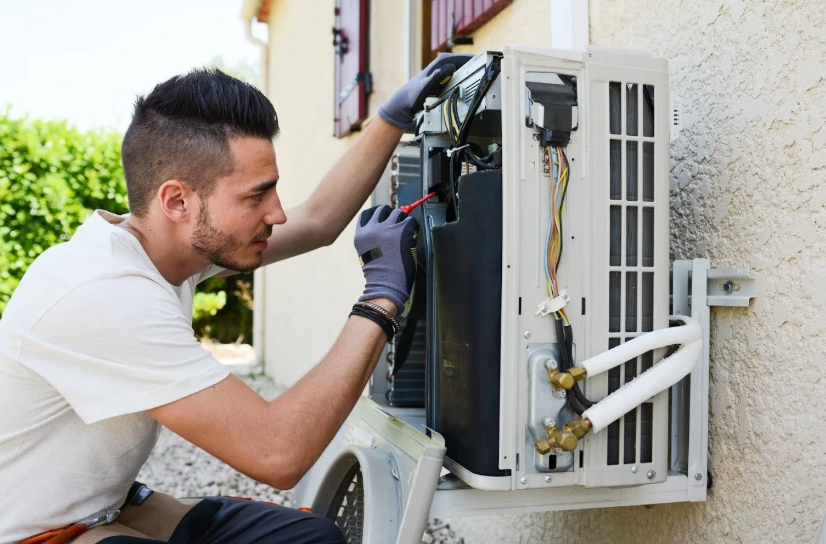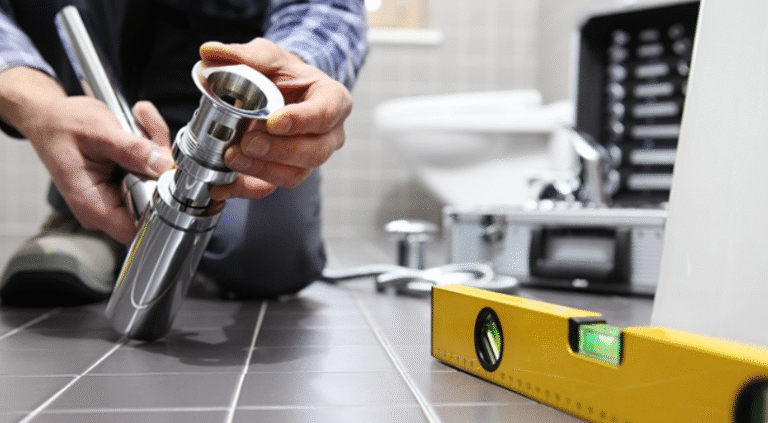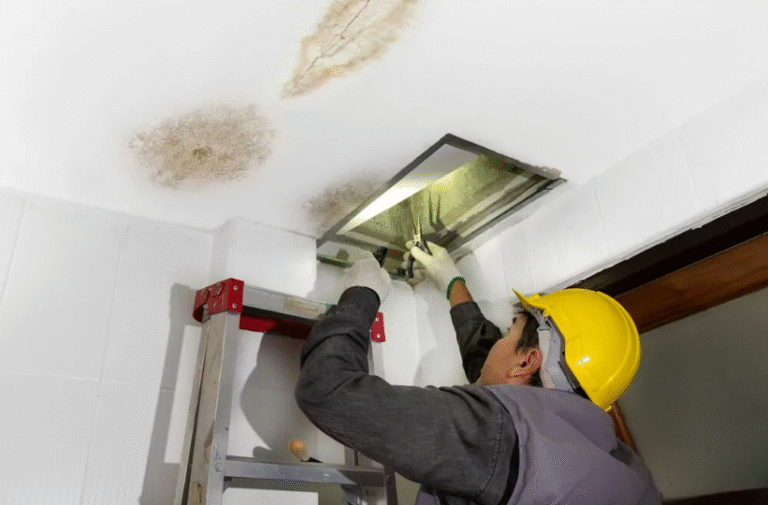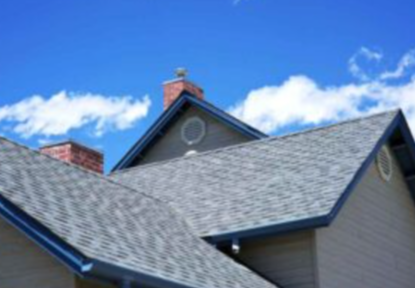When Should You Upgrade Your HVAC System?
Most HVAC systems last 10 to 15 years, but frequent repairs or rising energy bills may signal the need for replacement. Newer models offer better energy efficiency and improved indoor air quality, leading to long-term savings. Regular system checks and expert advice can help determine when to upgrade the HVAC system with Beltway Air Conditioning & Heating.
Signs It’s Time to Upgrade
Though HVAC systems are at the core of creating a comfortable indoor climate, older units tend to start displaying hints of inefficiency and regular malfunction. These signs tend to point towards the upgrade requirement.
When considering an upgrade, it’s essential to evaluate the current performance of your HVAC system. If you notice inconsistent temperatures or rising energy bills, it might be time to explore your options. Additionally, newer systems offer advanced features that enhance comfort and efficiency. To make an informed decision, see what Phoenix HVAC companies provide in terms of the latest technology and installation services. This can help you choose a system that not only meets your needs but also fits your budget. Remember, investing in a modern HVAC system can lead to long-term savings and improved indoor air quality, making it a worthwhile consideration for any homeowner.
Frequent Breakdowns
Ongoing system malfunctions, especially of costly components like compressors or heat exchangers, typically signal the demise of an HVAC system’s life.
Much as a broken-down old car that keeps needing to be repaired, an old HVAC system can easily become a money pit.
Typically, if it costs more than half of what a new system would cost to repair, replacement will probably be the more prudent option.
Rising Energy Bills
The air conditioning systems and the heating devices that are old require a lot of energy to provide the same amount of quality of service. In case the costs of energy in a month continue to increase or appear to be abnormally higher when compared to the costs incurred by nearby houses that are of the same size, then this can also be an indication that there are inefficiencies in the system.
Placing a new, efficient unit is capable of reducing energy consumption significantly, perhaps saving 20% to 30% or higher of energy use.
Uneven Temperatures
Hotspots or cool spots are a typical indication of bad or non-existent airflow, leakage of ducts, or an ineffective blower system. They usually indicate the presence of an aged HVAC system.
A well-installed and up-to-date HVAC system does not concentrate heat and makes the whole house comfortable.
Constant Operation
Units that continuously operate without a desired indoor temperature are probably suffering from performance problems. This may be due to improper system sizing or diminished efficiency as a result of wear and age.
An energy-efficient, correctly sized unit removes the strain and runs more dependably.
Regular maintenance is crucial for the longevity of your HVAC system, but sometimes issues arise that require more than just a routine check-up. One often overlooked aspect is the condition of your air ducts. Over time, they can accumulate dust and debris, leading to reduced efficiency and poor air quality. If you notice uneven heating or cooling in your home, it might be time to consider an air duct repair. Addressing these issues not only improves system performance but also enhances indoor air quality, ensuring a healthier living environment. By keeping your ducts in top shape, you can extend the life of your HVAC system and maintain a comfortable home year-round.
Unusual Noises
Strange or high-pitched sounds usually indicate that internal parts are wearing out. While minor problems might sometimes be corrected, repeated noises usually indicate underlying mechanical issues.
New HVAC systems are engineered to be quiet and long-lasting.
See also: Home Design – Australian Architecture Trends to Know in 2025
Age and Lifespan of HVAC Systems
The HVAC systems operate best in the initial years that they are in use; subsequently, the efficiency levels decrease, and the repair activities increase. With such changes in mind, homeowners get the enabling knowledge to make informed decisions before failures prove irritating or costly.
Typical Lifespan
Most last:
- 10–15 years for typical HVAC units
- 15–25 years for heat pumps
- Up to 35 years for boilers
- 10 years for window AC units
- 15–20 years for furnaces
Such intervals can be altered based on maintenance practices, frequency of use, and weather conditions. The wear and tear is more rampant in the case of severe weather conditions. When an older system reaches the 8-10-year stage, replacement should be considered, in particular, when the repair expenses are over 5,000.
If your HVAC system is showing signs of inefficiency or frequent breakdowns, it might be time to consider an upgrade. Newer models offer improved energy efficiency, which can lead to significant savings on your utility bills. Additionally, modern systems often come with advanced features that enhance comfort and air quality in your home. Before making a decision, it’s wise to consult with a professional liek https://sarkinenheatingandcooling.com/ who can assess your current system and recommend the best options for your needs. For expert advice and reliable service, visit this trusted resource to explore your options and ensure your home remains comfortable year-round.
Impact of Maintenance
So the trick to the lifetime extension of the systems is regular maintenance. Unnecessary labor is evaded through maintenance, which includes coil cleanings, filter replacement, and duct examinations. Neglect, however, compounds the wear, resulting in several breakdowns and reduced efficiency.
Regular maintenance yields better air quality and energy efficiency, and that is why it is an economic plan for homeowners to save money compared to last-minute repairs.
Wear and Tear Factors
Climate, usage, insulation, and others all take their toll on an efficient HVAC system’s lifespan. Poor insulation makes the systems inefficient, causing them to work harder, and old HVAC systems result in constant repairs. The new models, designed for maximum performance, offer more reliability under the same conditions.
Regular maintenance is crucial for ensuring your HVAC system operates efficiently, but sometimes, an upgrade is necessary to improve your home’s comfort and health. One important aspect to consider is the quality of the air circulating in your home. Poor air quality can lead to health issues and discomfort, making it essential to assess your system’s performance. For those in Port St. Lucie, scheduling an indoor air quality testing in Port St. Lucie can provide valuable insights into potential improvements. This step not only helps in identifying pollutants but also guides you in making informed decisions about necessary upgrades, ensuring a healthier living environment for you and your family.
Evaluating Repair Costs vs. Replacement
One can avoid money and frustration by knowing when it is time to stop repairing and replacing. By contrasting the expenses of repairing now and the benefits of not getting a new system installed in the long term, homeowners would make sensible, cost-effective decisions.
Cost Comparison
Average price ranges to use are as follows:
- Minor repairs: $150–$500
- Major repairs: $1,000–$5,000
- Standard new system: $4,000–$7,000
- High-efficiency system: $7,000–$12,000
Replacing a 12-year-old unit that would cost 2000 dollars to fix may not be such a good idea, especially when a new system can save on energy costs by 30 percent in the coming days. The 50 percent rule incorporates the fact that it is more advantageous to replace the system in case repairing is more than half the cost of a new installation.
Long-Term Savings
The note is that modern HVAC equipment is much more energy efficient and less expensive to repair, based on the advancements in technology. Incentives and rebates on efficient upgrades are readily available in most places to cover the cost of the upgrade at the front end.
Other than the savings, the value of the home and the greater comfort in all the seasons, a new system adds up, making it worthwhile to invest in.
Frequency of Repairs
Answers to several calls within a year of recurring problems usually imply more mechanical problems. A 10-year-old system with frequent malfunctions may turn out to cost more than the replacement of the system.
With a new HVAC system, peace of mind is created in terms of reduced downtime and long-term reliability.
The Benefits of Upgrading an HVAC System
The replacement of the HVAC system means considerable advantages- energy savings and better, smarter, healthier, and comfortable living.
- Conserve power and finances by using high-efficiency systems.
- Maintain a stable temperature indoors and less noise.
- Move with filtered cleaner air.
- Smart technology will bring them the convenience of ease and control.
Energy Efficiency
New systems are based on less energy consumption. HVAC systems that are energy efficient may save up to 20 percent or more in utility bills every month. Most of them are ENERGY STAR product-certified; thus, they are high-performance products.
Newer systems also cut down on the energy consumption and carbon emissions by green homeowners.
Improved Comfort
The more recent HVAC systems bring uninterrupted and consistent temperatures throughout the house. They are better at controlling humidity and giving lower sound levels to bring the quality of normal living.
Better Air Quality
The advanced filtration and ventilation technology is incorporated in the HVAC system. They remove dust, allergens, and other pollutants in the air, enhancing the indoor quality of air.
Mold and mildew are also avoided, thus making homes healthier through proper humidity control.
Smart Technology Features
Smart thermostat and home automation can also be done with new HVAC systems. The technologies possess the capability of having remote control of temperature, energy supervision, and scheduling maintenance reminders.
Other than efficiency, they also enable ease and convenience in the management of the system.
For more how do changing seasons affect our lifestyle
Knowing the Right Time to Upgrade for Maximum Efficiency
Pricey repairs, rising energy bills, and sagging comfort levels are some of the signs that it is needed to think of upgrading. The old HVAC system deteriorates with the passing of years and becomes an inefficient and expensive system, but new ones deliver more excellent performance, clean air, and intelligence.
A rebate and incentives are available, thus making an upgrade never as cheap. Employment of skilled individuals will make sure that homeowners will get the right unit suitable for the house, budget, and long-term requirements.
A scheduled upgrade not only provides daily comfort but also has long-term value, financial, environmental, and personal.






